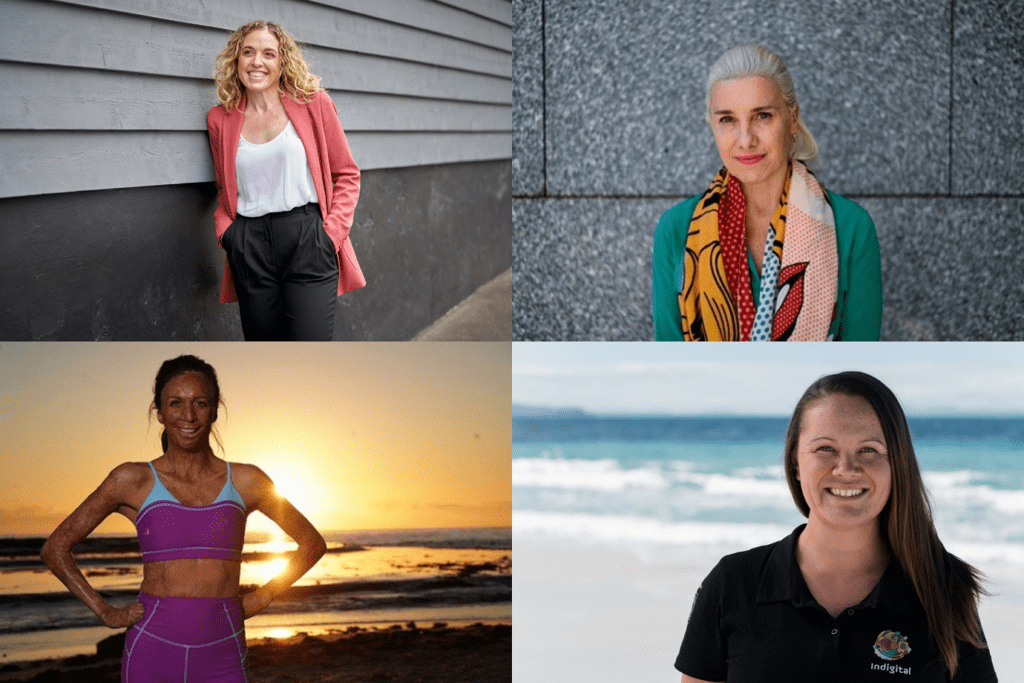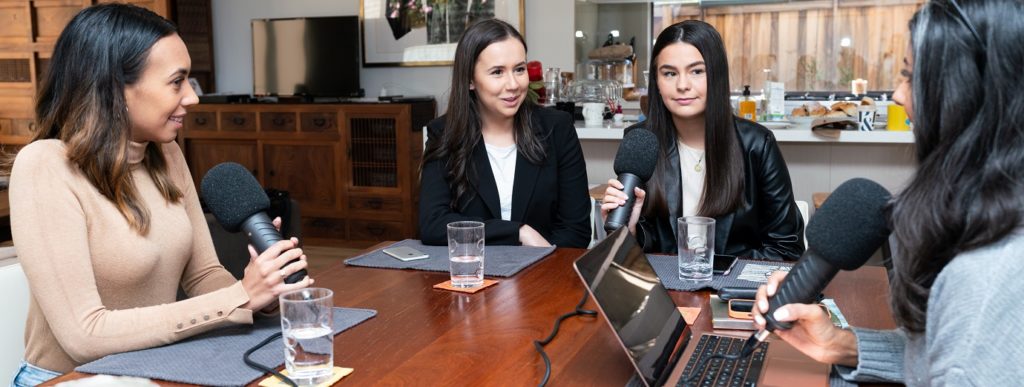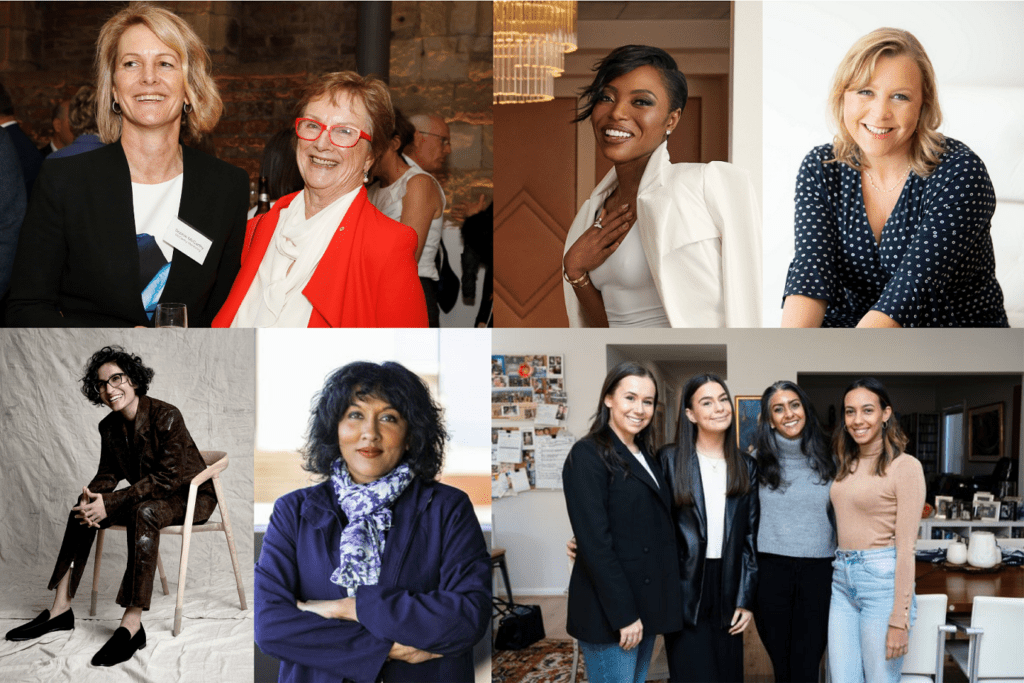Season four of The Leadership Lessons is officially wrapping up, and we’re bringing you one final episode recapping some of our favourite moments, and lessons, from the series.
Throughout this season, host Shirley Chowdhary has been joined in conversation with some formidable women leading in all kinds of fields, including STEM, medicine, beauty and health, journalism, finance, motivation and HR, and management.
Each guest has generously shared their lessons in leadership, talked about self-doubt and how they’ve risen above that to the challenge of creating and conquering.
“Before we go to air with any guest, I always ask if there is anything they don’t want to talk about. None of these woman took anything off the table,” Shirley said, in reflection of the season.
“All of them shared their stories with us so that we might learn and grow and understand how leadership can look different, sound different and be different to the way we have been conditioned to think about it. “

Here, we wanted to share some memorable moments from each of our guests, and explore some of the key themes that stood out to us as we produced these episodes. As always, thanks to Salesforce for making The Leadership Lessons possible.
Mikaela Jade
Mikaela Jade, founder and CEO of Indigital, didn’t set out to be a leader. She simply want to create something meaningful, and then she learnt how to speak about it and bring other people along.
“I didn’t show any traditional leadership qualities as I was growing up and didn’t believe myself to be a leader. The way that I went about doing things was just seeing a need and going, ‘Well, no one else is going to bloody do it so I better do something’,” she said.
Jonty Low
Jonty Low, Chair of the Australian Associated Press, said she doesn’t have a clear image of herself as a leader. She’s focused on the work she’s doing, and trying to make a difference.
“I still don’t think I’m a leader, I don’t have any sense of myself in that way. I just want to do good work and make change.”
Kristy Chong
Kristy Chong, founder and CEO of Modibodi, is focused on being an authentic leader, who does good work and strives to be collaborative.
“Who am I at work, is who I am at home. I’m a big believer in driving business results but with collaboration. I’m a big believer in a hybrid model, because you need that little bit of staff spirit and those spontaneous moments where you come up with ideas together,” she said.
“We need to listen to everybody, to ask for their opinions and draw them out. It’s very easy to just have your own voice heard all the time.”
Nina Mapson-Bone
Nina Mapson-Bone, Managing Director of Beaumont People, takes a long-term approach to leadership in order to get the best outcomes, and the most out of her staff.
“I take a very long-term thinking approach to things. When I see people making leadership mistakes, it’s often because they’re taking what I see as a short-term approach. They’re fearful, or nervous, or scared or worried about results so they try and push harder when it’s the wrong thing to do at that point in time,” she said.
“I try and separate my personal, emotional response from things, and think what is going to get the outcome.”
Professor Raina MacIntyre
Professor Raina MacIntyre, who oozes confidence in her own abilities and knowledge, is very clear about behaviour she will not accept in her workplaces.
“You’ve got to quickly understand what people’s capacities are, then tailor your expectations to their capacity. I also learnt my capacity for work and juggling multiple things is probably much greater than most people’s,” she said.
“Just follow your own path and don’t try to be someone else. And don’t waste your time comparing yourself to other people. I always impress upon people the importance of honesty and trust.”
Sophie and Wendy McCarthy
Mother-daughter duo Sophie and Wendy McCarthy shared their thoughts on career planning, and what an important role mentoring can have one one’s personal growth and career trajectory.
“Mum always had a nice saying: that all throughout your life, you should be a mentee and a mentor at the same time,” Sophie said. “You should always be learning; you should always be giving back.”
Bronte Charles, Madison Howarth and Charlotte Ryan

We heard from young women Bronte Charles, Madison Howarth and Charlotte Ryan about what leadership means to them as First Nations women.
At the beginning of their leadership journeys, the spoke about what drives them to get up every day, and how they like to honour their ancestors in everything we do.
“You can’t deny it, I feel it when I’m in colonised environments, like uni, I feel that resilience, I feel that strength. I feel it when I’m tired and I don’t want to do it anymore. It’s resilience passed on from our ancestors. It’s undeniable, almost,” Bronte said.
Mariam Mohammed
Mariam Mohammed, the co-founder of MoneyGirl, was open and honest about her struggles with mental health, and shared that she often has bad days where it’s hard to get going. She told Shirley about her ‘why’ and her drive to make the world better.
“When I am ready to give up, on a day like today, when I have trouble getting out of bed, what eventually gets me out of bed is that I’ve been through it, and I know that I’m strong enough to make it through again,” Mariam said.
“I will do so because one, two or a couple more young women will have it a little bit easier because of the work that I do.”
Turia Pitt
Turia Pitt generously shared with us her tips on how to turn negative self-talk around, and her belief that everyone has the inner resources to cope with whatever life throws their way. In her life, she chooses happiness, and to be grateful for every day.
“I knew in those early days that if I just kept ruminating on what my future may or may not look like or how I was going to rebuild my life, or the unfairness or the injustice of it all, that would just eat me up inside,” Turia said.
“What can I be grateful for today? How can I make today good? How can I enjoy today with my partner?”
Sharon Chuter
Sharon Chuter, founder and CEO of UOMA Beauty, believes in the good of everyone, and she’s focused on redefining the beauty industry make every person feel like they deserve a place in the world.
“For UOMA Beauty, that was what I wanted to do there. I wanted to create this space where everybody was proud to be themselves. I wanted to create this beautiful rebellion.”


